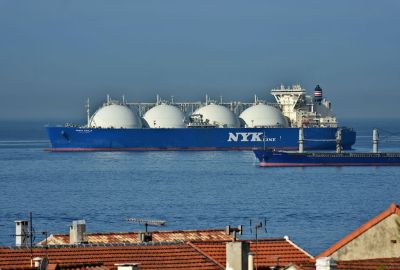As Ecclesiastes tells us: “What has been will be again, what has been done will be done again; there is nothing new under the sun.” War, death, poverty—and protectionism, too, which very often is a contributor to the other three.
I have had Puritans on the brain lately—and not the nice Plymouth Rock kind of Puritans but the angry ones who fought the English Civil Wars. I am particularly struck by the fact that when Oliver Cromwell et al. got around to abolishing the British monarchy, they created what was only the second Protestant republic of any real consequence in Europe at that time, joining the Dutch. The two republics had more in common than theology: The English had been supporters of the Dutch Republic in its long struggle for independence from Spain, and Spain had been a military and political problem for Catholic England long before it was a military, political, and religious problem for Protestant England. With similar cultures, similar religious orientations, and a vast array of shared political and economic interests, it was natural that the English and the Dutch should have been fast allies. In fact, they had so much in common that the English actually proposed uniting their countries into a single confederation and dispatched a senior diplomat to open negotiations.
Of course, the two brother republics almost immediately went to war with one another.
In a sense, the two countries were too much alike. The British would one day be the world’s unquestioned masters of the seas and the greatest power in international trade, but the Dutch were a few years ahead of them still in the middle of the 17th century. In fact, most trade between England and English colonies overseas was conducted by means of Dutch merchant ships. This rubbed the English the wrong way but, instead of creating the economic and political incentives at home that would have encouraged and supported the development of the kind of merchant navy that England needed, the aptly nicknamed Rump Parliament simply passed a law trying to force one into existence, mandating that foreign ships could not transport goods from distant ports—Asia, Africa, or the Americas—to England or to English possessions, while European merchant ships would be allowed to dock in English ports only to unload goods from their countries of origin. Anticipating our Jones Act, the Navigation Act of 1651 mandated that goods coming from distant ports must be transported to England in English ships with English owners and crews that were in the majority English.
Never mind that England didn’t actually have a fleet yet to service that trade—even the coastal trade in England itself was at the time largely served by the Dutch. With its relatively small and agrarian economy—stifled by the fact that England then lacked the kind of free trade the Dutch enjoyed—Cromwell’s commonwealth did not constitute a very large share of the Dutch maritime trade, but the Navigation Act was enough to irritate the Dutch. And when the English began attacking Dutch ships, it was war. The war accomplished what wars accomplish—people were killed, property was destroyed—and, in the end, the Dutch and the English resumed trade on terms that weren’t really any more favorable to the English than they had been before the war. The English would not finally realize naval supremacy for about a century, and, in the end, they won their supremacy by building ships and developing a corps of well-trained professional sailors, both merchant and military. They didn’t get there by politicking—they put in the work and made the big investments, which is really the only way anything big ever gets done.
And, what have we learned?
Americans living in New England this winter risk facing a very strange problem—a strange problem for Americans, anyway: a shortage of natural gas. The United States produces oodles of the stuff, of course, and, recently, American producers have been exporting liquified natural gas (LNG) to Europe to help make up for Russian supplies taken offline by Vladimir Putin’s vicious and stupid war in Ukraine. It would be an easy thing to ship LNG from U.S. producers to New England consumers who need it, but, because of the Jones Act, it is as a practical matter impossible to do that. The Jones Act requires that such shipping be done by U.S.-flagged ships and, inconveniently, there is no fleet of U.S.-flagged LNG tankers available. That is why LNG consumers in New Hampshire and Maine use imported gas from Trinidad and Tobago—and have, from time to time, resorted to Russian imports, too, as recently as during the administration of Donald Trump. There are all sorts of ways to get U.S.-produced energy to U.S. consumers, but we have to do the work: Somebody has to build the pipelines or the fleet and infrastructure to get that done—and, more to the point, somebody in Washington has to let them. Instead, Washington blocks the development of critical energy infrastructure for political reasons—and then grandstands about using the Jones Act to protect nonexistent jobs on nonexistent LNG tankers!
For the esteemed ladies and gentlemen of Washington who allow our republic to be thus misgoverned, “rump” is too kind a designation.
“What has been will be again, what has been done will be done again; there is nothing new under the sun.”






Please note that we at The Dispatch hold ourselves, our work, and our commenters to a higher standard than other places on the internet. We welcome comments that foster genuine debate or discussion—including comments critical of us or our work—but responses that include ad hominem attacks on fellow Dispatch members or are intended to stoke fear and anger may be moderated.
With your membership, you only have the ability to comment on The Morning Dispatch articles. Consider upgrading to join the conversation everywhere.